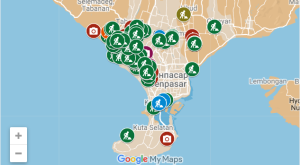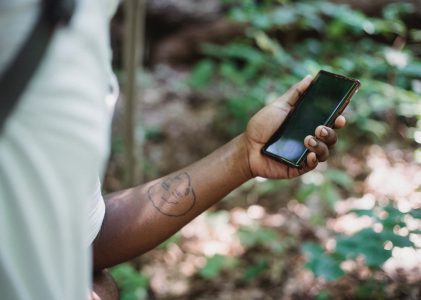Sungai Watch was founded in 2020 by three siblings united behind the mission to tackle river pollution in Bali. With Indonesia being the second largest plastic polluter of the oceans and the country’s struggle with managing its waste, local action is needed. The Watch, along with over 50 ‘River Warriors’ and hundreds of volunteers, have taken matters into their own hands, with remarkable impact:

The Sungai Hotline was introduced to help tackle illegal landfills in Indonesia. Also referred to as “the 911 for rivers”, the Hotline allows everyone with access to a mobile device to signal illegal dumping grounds around Bali.
“It’s as easy as taking a photo, sending us the exact pin and we will do our best to clean it up!”
The Hotline is one example of how Information and Communication Technologies for Development (ICT4D) can be used to encourage individuals to participate in development initiatives. Creating the opportunity for locals to get involved in safeguarding their environment by a few simple clicks on their phone creates a beneficial network between the organization and its audience.
Although ICT does face many challenges and limitations, its continuing implementation in development creates more and more opportunities for unique inventions and diverse user groups.
In a globalized, digitalized world ICT is a crucial element of development work. After all, as mentioned in the previous blog posts, the majority of people across the globe have access to and are daily users of ICT. This has led development organizations to increasingly pay attention to not only the technologies they implement but also how the public will receive them. Involving users in the production, creation, or feedback of ICT4D is a resource in the development field, used with great success over the last years.

Participation of individuals and communities in development initiatives through ICT has the potential for staggering results, as shown in the example above. It can also have an empowering or, in some cases, disempowering effect on people. In my next few blog posts, I will address this very topic in relation to social change, while reflecting on some recent events, which have brought up many question marks.
I believe that empowerment, personal and collective, is an essential element in creating lasting social change. Changing the limiting narratives within a society- those “standards” of what is or isn’t acceptable, is, in my opinion, one of the most effective ways to put an end to inequality and marginalization.
In developing, and developed countries alike.
Follow us on social media and stay tuned for our next posts!
Share your thoughts in the comments below.
Find out more about global waste management here.
See the work of Sungai Watch here.


